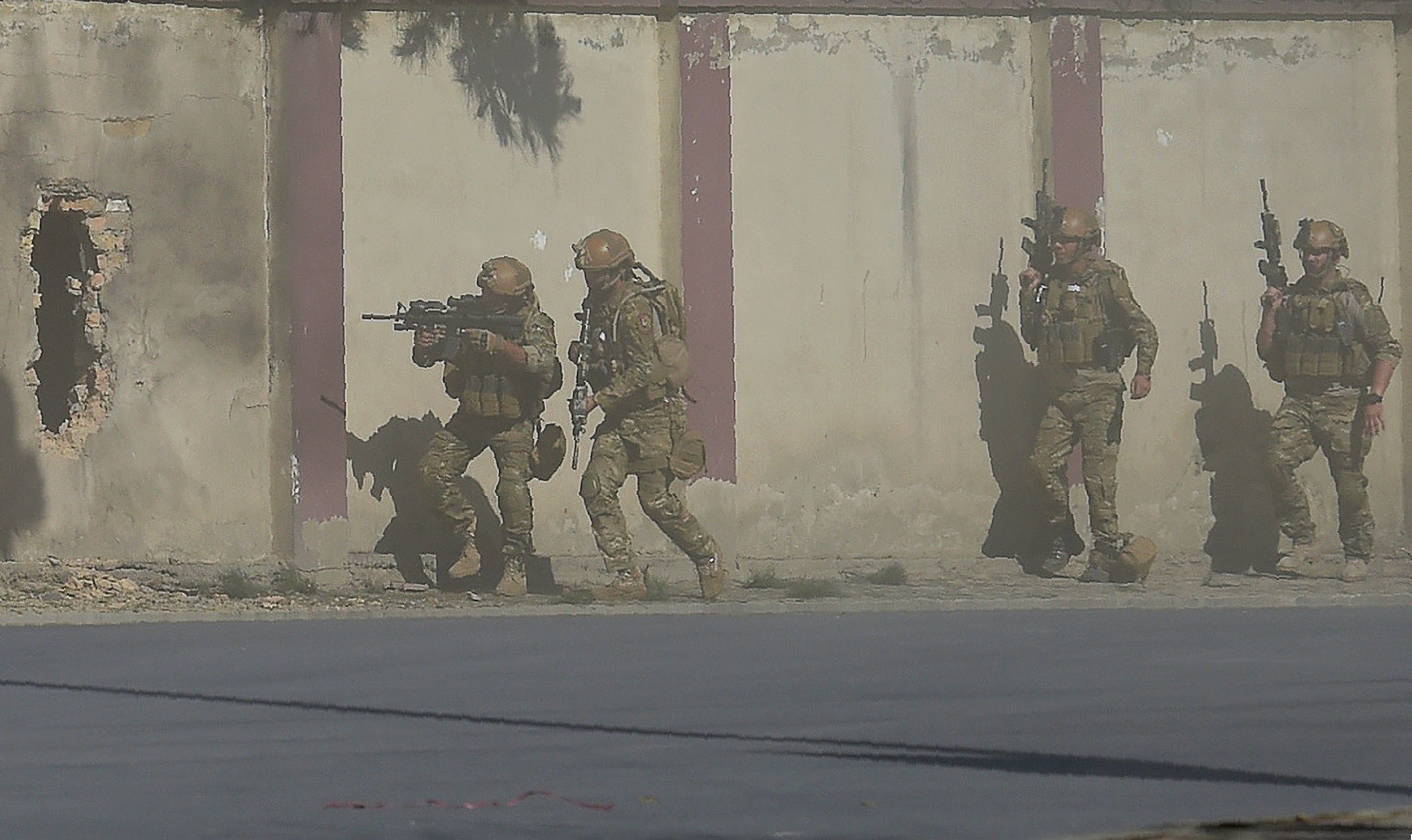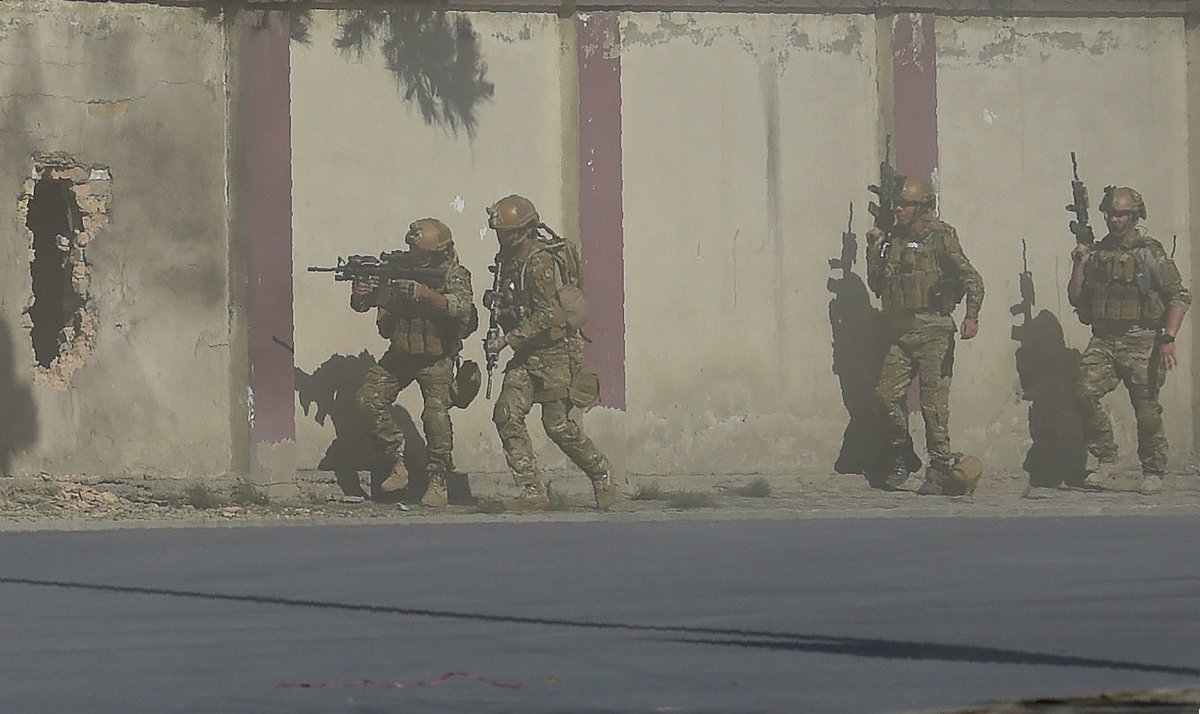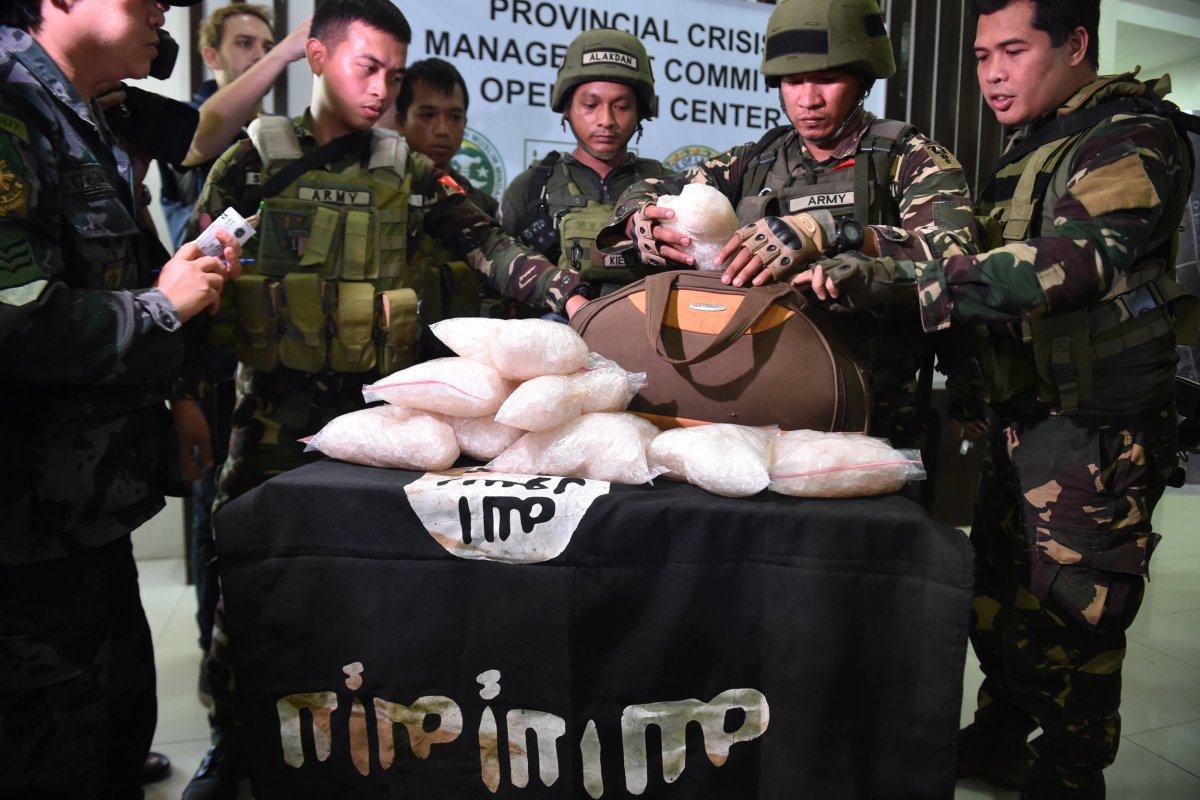
A top Iranian official has said his country is bracing itself for Islamic State militant group (ISIS) attempts to establish itself in Central Asia following its military defeats across the Middle East.
Addressing Tehran's Seminar on Terrorism, Extremism and Regional Security in West Asia, Iranian Intelligence Minister Mahmoud Alavi said Tuesday that, although ISIS no longer held any significant stretches of territory, it still possessed a significant stockpile of arms, meaning its threat persisted throughout the region and beyond. He added that Iran, which helped drive the militants out of strongholds in Lebanon, Iraq and Syria, anticipated the group would try to establish a foothold further in the heart of Asia, where it has already made gains in recent years.
Related: New York City attack: How ISIS teaches fighters across the world to make bombs
"ISIS has lost land, but has not surrendered its arms, and is looking for land in Afghanistan, Pakistan and Central Asia in order to, in this way, revive the idea of the Islamic caliphate," Alavi said, a campaign that he called "a distorted pattern of Islam" not truly associated with the history of the faith or region, according to Iran's semi-official Mehr News Agency.

Just one day prior, Afghan Defense Minister Dawlat Waziri told the news outlet he would seek Iran's assistance in cracking down on the ongoing insurgency in the war-torn state. The move could complicate the situation on the ground as about 14,000 U.S. troops assist local security forces to take down both the Taliban, an ally of Al-Qaeda, and ISIS, which managed to establish its own affiliate, despite 16 consecutive years of U.S. military intervention. While the U.S. and Iran collaborated in the early post-9/11 phases of the war against the Taliban in Afghanistan, the two have increasingly fallen out in the years since.
Now, even as the U.S. and Iran both wage war against ISIS, they have accused one another of pursuing ulterior motives that exacerbate rather than curb the threat of extremism. The latter stages in the battle against ISIS, however, have given Iran the advantage and seen its allied forces, especially Shiite Muslim militias, gain the upper hand over U.S. interests in the strategic region. Trump's controversial decision to recognize the disputed city of Jerusalem as the capital of Israel, a move that Alavi and others have predicted would fuel ISIS ambitions, has also further alienated the U.S.
While ISIS's relatively modest presence in Afghanistan was still powerful enough to kill U.S. soldiers, stage deadly attacks on civilians and even rival the Taliban in certain regions, the jihadis have had a less clear track record in Pakistan, where a number of other Sunni Muslim militant groups were active. ISIS-affiliated group Jundallah claimed responsibility for a May 2015 mass shooting on a bus in Karachi, but the Pakistani government rejected the notion of it being the first ISIS attack in the country, instead blaming India, which denied any responsibility. Some other deadly ISIS-claimed attacks in Pakistan have also been claimed by other militant groups such as Jamaat-ul-Ahrar and Lashkar-e-Jhangvi.
Last month, Iranian Defense Minister Brigadier General Amir Hatami told Pakistani army Chief of Staff General Qamar Javed Bajwa that Iran saw Pakistan's security as its own and that boosting relations between Tehran and Islamabad was "in line with strengthening defense capabilities of both neighboring countries," Pakistan Observer reported, citing Iran's state-run Islamic Republic News Agency.

In addition to Afghanistan and Pakistan, groups claiming allegiance to ISIS have created outposts in other parts of the world, including areas of the Caucasus, the Arabian Peninsula, northern and sub-Saharan Africa and in Southeast Asia, especially in the southern Philippines. Using its still-powerful social media presence and virtual network, ISIS also has managed to share the tools necessary to carry out deadly plots with prospective jihadis across the globe. The latest example potentially being the bombing attempt Monday in New York City.
"They're spreading this knowledge all over the world," Ernest Barajas Jr., a former Marine explosive ordnance disposal technician who has helped organizations clear ISIS explosives, told The New York Times in a report published Monday.
"It's going to the Philippines; it's in Africa." He added, "This stuff's going to continue to grow."
Meanwhile, the whereabouts and fate of ISIS chief Abu Bakr al-Baghdadi remained uncertain, even as a joint Iran and Russia-backed Syrian military campaign, an offensive by the mostly Kurdish Syrian Democratic Forces and its U.S.-led coalition sponsor, and a joint U.S.-backed Iraqi military and Iran-backed Popular Mobilization Forces effort rapidly dismantled the last of ISIS's self-styled caliphate in Iraq and Syria.
Both the Syrian and Iraqi governments have declared ISIS dead in their respective countries and have credited Iranian intervention. They differ, however, on the U.S.'s role, with the former considering the U.S. presence illegal and only recognizing Iranian and Russian support, and the latter having been a U.S. partner since being installed in the wake of the 2003 U.S. invasion and overthrow of former Iraqi President Saddam Hussein.
Uncommon Knowledge
Newsweek is committed to challenging conventional wisdom and finding connections in the search for common ground.
Newsweek is committed to challenging conventional wisdom and finding connections in the search for common ground.
About the writer
Based in his hometown of Staten Island, New York City, Tom O'Connor is an award-winning Senior Writer of Foreign Policy ... Read more
To read how Newsweek uses AI as a newsroom tool, Click here.








